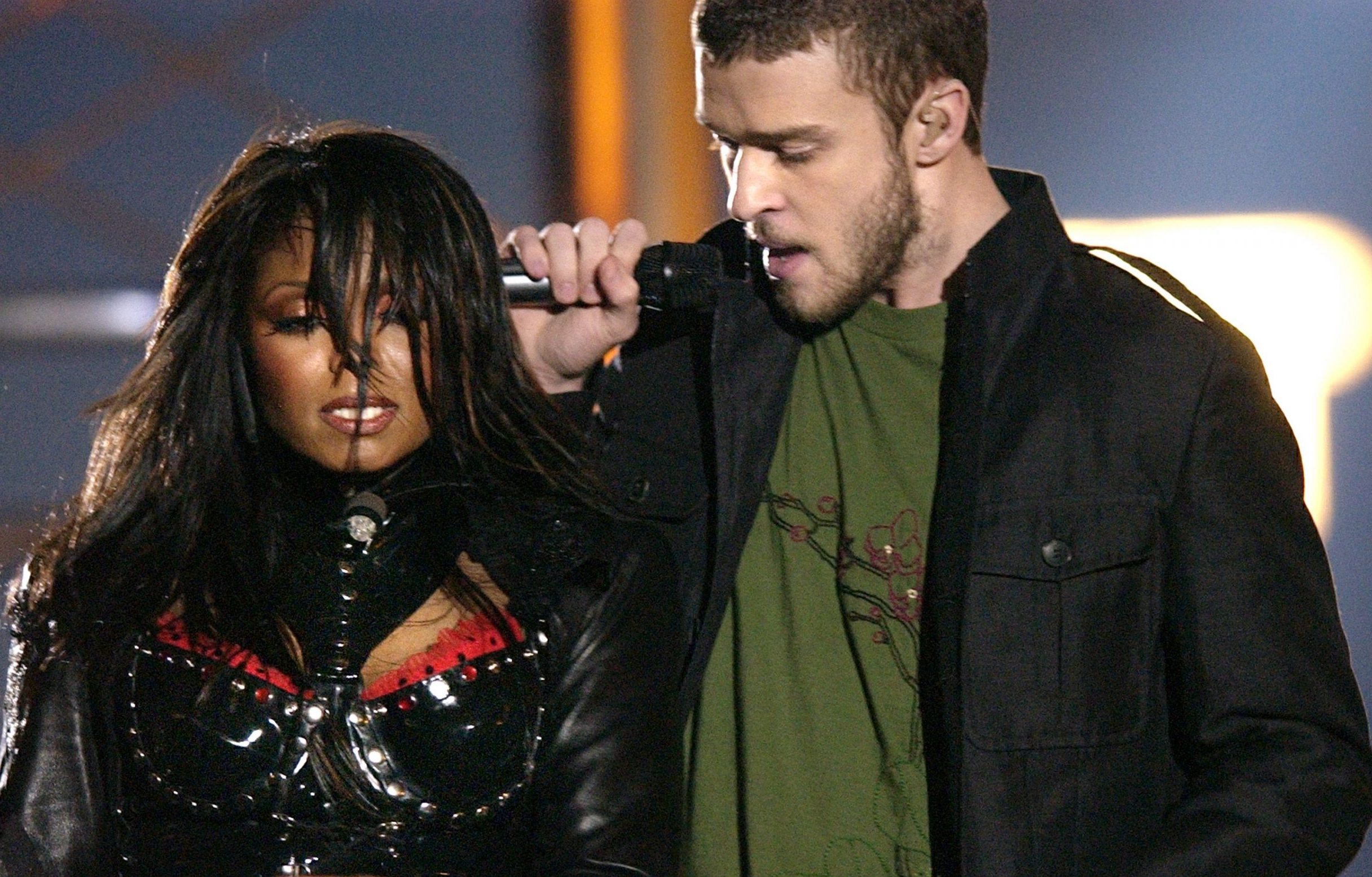In light of Justin Timberlake’s belated apology and the announcement of the new Lifetime documentary, here is a look at how Janet Jackson’s career was sabotaged.
Janet Jackson is the youngest child of Joe and Kathrine Jackson. Coming from a talented family, Jackson was surrounded by music, stardom and fame from a young age. Her older brothers (including Michael) were infamously part of the 70s soul group The Jackson 5/The Jacksons.
Janet’s solo career was officially launched in the early 1980s thanks to her self-titled debut album. After releasing a handful of records, Janet gained household name status with her now-iconic 1989 ‘Rhythm Nation’ LP, often regarded as one of the 80s best albums.
Rhythm Nation became a cultural watershed moment in both black and mainstream entertainment. Jackson was often praised for her vocal ability, stage presence and desirability. By the late 90s, Janet had already cemented herself as a musical legend in her own right. Janet was a star who could stand apart from her siblings.
Jackson’s style, music videos and body of work became music staples. Her success was lauded as a turning point for R&B and pop music. Janet’s influence has reached the likes of Beyoncé, Britney Spears, Usher and many others.
So what went wrong?
In 2002, Justin Timberlake was fresh out of the boyband NSYNC and just starting his solo career. Justin had hailed Janet as an influence on him and even got her to do supporting vocals on his song (And She Said) Take Me Now.
In 2004, Timberlake and Jackson were invited to perform at the Super Bowl XXXVIII halftime show. When an artist is invited to perform at the Super Bowl, it is often regarded as one of the most prestigious honours you can get.
In a mishap now dubbed ‘nipplegate’, Janet’s breast was accidentally exposed by Timberlake in a wardrobe stunt gone wrong. As the event was airing live, broadcasters attempted to cut to a wide shot to cover up what had happened.
Many media commentators at the time believed the event to be some kind of publicity stunt. In reality, after looking at Jackson’s demeanour after the event, she was visibly distressed, embarrassed and panicky.
https://www.youtube.com/watch?v=I8QZINhlfCY
Nipplegate caused a media frenzy. In an unexpected turn of events, Janet’s music and videos were blacklisted from all networks as a result. This situation is tragically deep-rooted in misogyny and the toxic media cycle that was prevalent in the 2000s.
Despite Timberlake causing the accident, he famously did not apologise until it was time for him to promote his second album. This apology did not surface until 2006, two years later.
While seeming genuine on the surface, many called out Justin for being self-serving. Justin did not come to Janet’s defence when she was blacklisted, and her tour was cancelled. Justin only spoke up it seemed when it was time to make some money and clear his public image.
Contradicting his own apology and making a mockery of Jackson, Justin dissed Janet on his song Give it to Me for seemingly no reason. Janet was mentioned by name when Timberlake performed the track live.
While Justin was not solely to blame for this incident, its effects and impact were really a sign of the times for how toxic, male-centric and damaging celebrity culture was in the 2000s. While things have improved marginally, there still is a long way to go.
A recent example of this is the highly publicised fallout between singer Kesha and producer Dr Luke. Kesha called out Luke for sexual misconduct in 2014. Claims he denies. But at the Grammys in 2018 Kesha performed her song Praying which was described as “incredibly powerful and relevant,” by host James Corden. The song, which details abuse, was nominated for a Grammy award that year.
Fast forward to 2020, and Dr Luke was nominated for a Grammy for producing Doja Cat’s hit song Say So under the pseudonym Tyson Trax. No mention of the Time’s Up or #MeToo campaigns this time.
The lack of consistent support in the industry is a problem magnified for women of colour. Janet Jackson was publicly ridiculed and torn apart in the years following the Super Bowl event. Notably, Jackson was once again the victim of abuse at a 2007 press interview for a then-upcoming movie with Tyler Perry. Jackson received perverse and inappropriate questions from the reporters on the show.
The reporters repeatedly bought up the incident. They asked questions about Jackson and her body and the fact that she allegedly staged nipplegate. Throughout the interview, Jackson was visibly upset. The reporters continued to prod and poke despite Perry trying to steer the interview back on track.
The opposing directions Timberlake and Jackson’s careers took post-nipplegate are unfortunate and all too common in the music industry. From a poor public image to a cancelled tour, Jackson’s career has sadly never fully recovered.
To me, this situation proves a racist undercurrent that runs throughout the music industry. Janet Jackson was a victim of an uncontrollable situation and was vilified for it.
On the other hand, Timberlake benefited from the controversy thanks to his privilege as a white male. This was not and is not fair. Women and Black women across all walks of life often face objectification, over-sexualisation and other forms of societal venom.
Hopefully, with Jackson’s new documentary, the narrative behind nipplegate can be course-corrected. Not just for Janet’s sake, but for all women.

